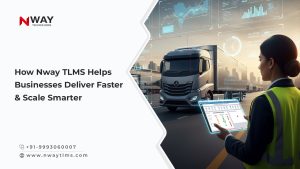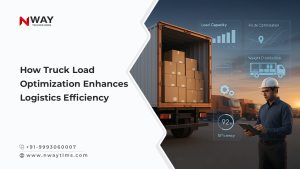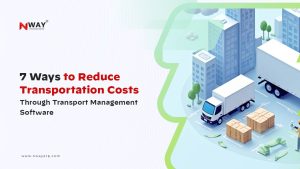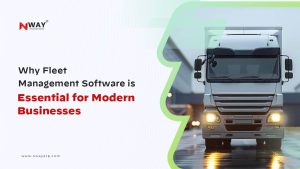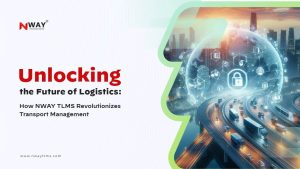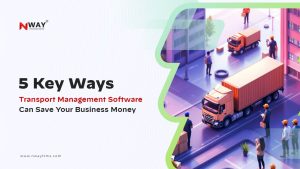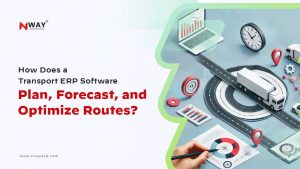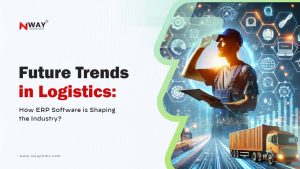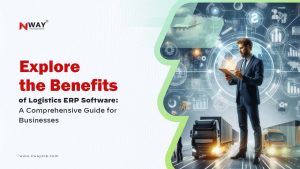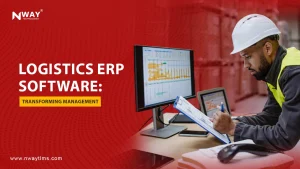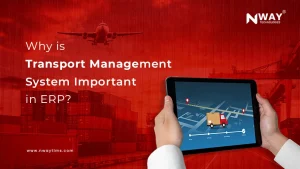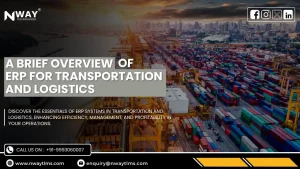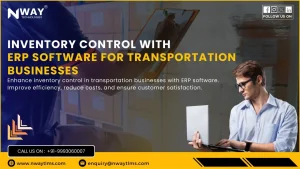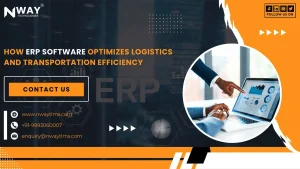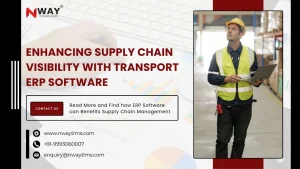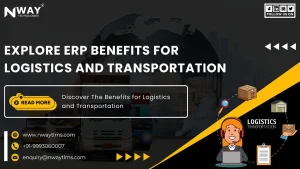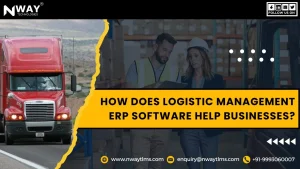How ERP Software Optimizes Logistics and Transportation Efficiency
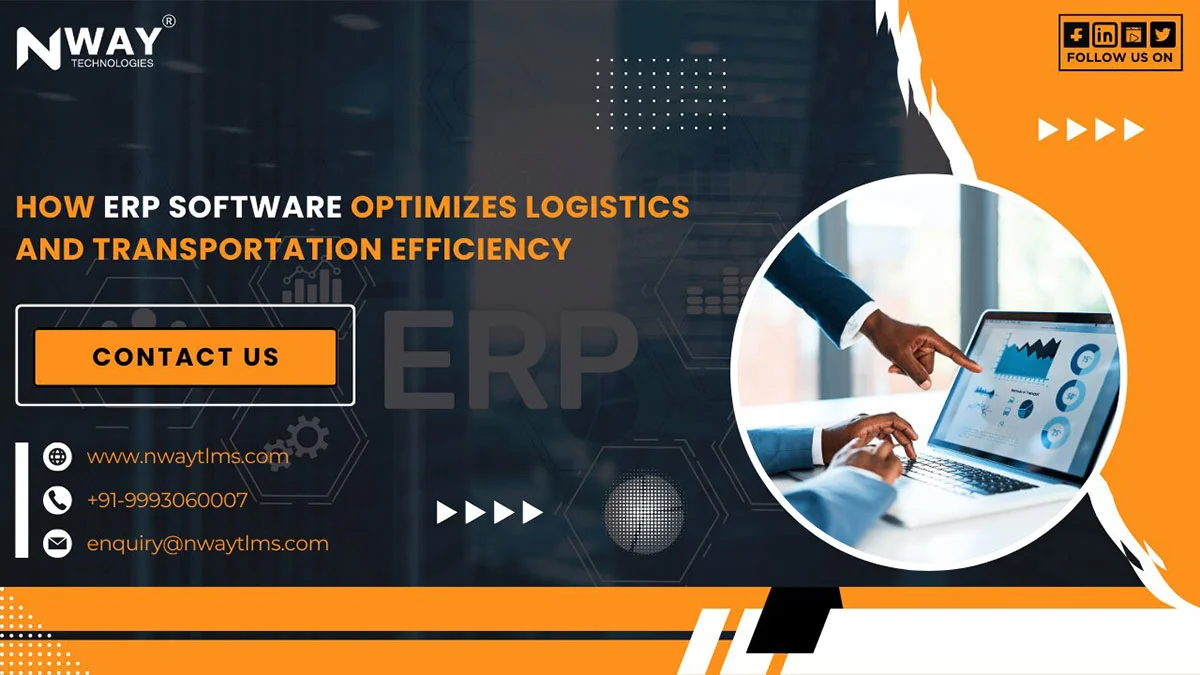
In today's fast-paced world, the logistics business is under constant pressure to increase efficiency, cut costs, and satisfy rising customer demands. ERP software is one of the most powerful technologies accessible to logistics organizations. ERP software improves transportation efficiency and streamlines logistics operations by integrating several corporate processes into a single, unified system. In this blog, we'll look at how ERP software is altering the logistics business and the significant advantages it provides for transportation management.
Understanding ERP Software in Logistics
ERP software integrates and manages major corporate processes like procurement, inventory, sales, finance, and human resources. ERP systems in logistics serve as a comprehensive platform that connects numerous areas of transportation management, such as order processing, fleet management, route planning, and real-time tracking.
By integrating these processes into a single system, ERP software allows logistics organizations to get real-time visibility into their operations, increase departmental collaboration, and make data-driven decisions that improve overall efficiency.
Difference between LMS, TMS and ERP
Logistics management, transportation management, and enterprise resource planning each offer unique perspectives on supply chain activities. While all three approaches can be used to streamline tasks, there are some variances that necessitate further investigation.
For example, logistics and transportation management place a strong emphasis on product transportation, including strategies for achieving ideal delivery times and visible tracking or performance measures. Meanwhile, ERP systems prioritize broad analysis over specific goals. Furthermore, ERP systems enable data collecting from many sectors of the supply chain for use in predictive models, which logistics and transportation management do not normally provide.
Logistics Management
(LMS) Manages, distributes, and delivers commodities to the proper end users with total correctness in quality. It is essential for effective supply chain management.
Delivery effectiveness, timely assignment of responsible transport resources, and planning optimized delivery routes to save time and money are just a few of the key components of good logistics management.
Transport Management
(TMS) is concerned with managing and transferring things or goods from one destination or location to another in a secure and efficient manner, enabling for the smooth interchange of trade and communication.
It includes not only safe and timely delivery, but also an efficient shipping strategy in accordance with current legal frameworks while utilizing available modes of transportation such as rails, roadways, airways, etc., maximizing asset utilization, and optimization as both cost effective and sustainable methods.
Enterprise Resource Planning
(ERP) is a procedure used by businesses to manage many sorts of resources. Industries can use these processes to manage the entire product life cycle as well as their finances, customer relations, transportation, order fulfillment, inventory management, and other aspects of their company.
When it comes to operations management, project planning platforms, and communication networks, ERP improves productivity and automation. Its advantageous method enables firms to build strategies while also increasing productivity, lowering the possibility of errors or ambiguous messaging.
Key Benefits of ERP Software for Transportation Efficiency
1. Real-Time Tracking and Visibility
One of the primary benefits of ERP software is the ability to track shipments and vehicles in real time. This visibility enables logistics managers to track the location and status of shipments, identify potential delays, and take proactive steps to resolve concerns. Real-time tracking improves customer service by giving accurate and timely updates on shipment progress.
2. Optimized Route Planning
Efficient route planning is critical for lowering transportation costs and accelerating delivery times. ERP software optimizes route planning using powerful algorithms and historical data, taking into account traffic conditions, fuel usage, and delivery windows. Logistics organizations may cut trip distance, save money on fuel, and improve overall fleet efficiency by optimizing routes.
3. Enhanced Fleet Management
ERP systems offer complete solutions for fleet management, such as maintenance scheduling, fuel management, and driver performance monitoring. ERP software assists logistics organizations in maintaining ideal fleet conditions, reducing downtime, and extending vehicle lifespan by automating these activities. Furthermore, monitoring driver performance assures adherence to safety laws and promotes efficient driving habits.
4. Improved Inventory Management
Effective inventory management is critical for reducing stockouts and excess inventory, both of which can impair transportation efficiency. ERP software combines inventory management and transportation planning, ensuring that stock levels are reliably tracked and refilled in a timely way. This connection enables logistics organizations to manage optimal inventory levels, save carrying costs, and ensure that supplies are available when needed.
5. Streamlined Order Processing
Effective inventory management is critical for reducing stockouts and excess inventory, both of which can impair transportation efficiency. ERP software combines inventory management and transportation planning, ensuring that stock levels are reliably tracked and refilled in a timely way. This connection enables logistics organizations to manage optimal inventory levels, save carrying costs, and ensure that supplies are available when needed.
6. Data-Driven Decision Making
ERP systems collect and analyze massive volumes of data from all elements of logistics operations. This data gives useful information on performance parameters such as delivery times, fuel usage, and fleet utilization. Logistics managers can use these data to find areas for improvement, optimize operations, and make informed decisions that increase transportation efficiency.
Future Trends in ERP for Logistics
ERP systems are growing increasingly sophisticated as technology advances, introducing new possibilities that improve transportation efficiency. Some of the rising themes in ERP for logistics are:
Artificial Intelligence (AI) and Machine Learning (ML)
AI and machine learning algorithms can use previous data to forecast demand, optimize routes, and improve decision-making. These technologies help logistics organizations predict and respond to market developments more efficiently.
Internet of Things (IoT)
IoT devices, such as GPS trackers and sensors, give real-time information about vehicle location, temperature, and other important factors. The integration of IoT and ERP systems improves visibility and control over logistics operations.
Blockchain Technology
Blockchain technology can increase supply chain transparency and security by creating a tamper-proof ledger of transactions. This technology can increase stakeholder confidence and collaboration while lowering the risk of fraud and errors.
Cloud-Based ERP Solutions
Cloud-based ERP systems provide greater flexibility, scalability, and cost savings than on-premises alternatives. They allow logistics organizations to access their systems from any location, promoting remote work and cooperation.
READ MORE : Transport ERP Software : Enhance Supply Chain Visibility
Conclusion
ERP software is a significant tool for increasing transportation efficiency and improving logistical processes. ERP systems assist logistics companies in increasing efficiency, lowering costs, and improving customer satisfaction by providing real-time visibility, optimizing route planning, improving fleet management, inventory management, streamlining order processing, and enabling data-driven decision making.
As technology advances, ERP systems' capabilities will only grow, creating new chances for logistics companies to remain competitive in an ever-changing market. Adopting ERP technology is no longer a luxury, but rather a requirement for logistics organizations seeking to flourish in the digital age.
Let’s make running your construction business a little less crazy.
Subscribe for weekly insights.
Recent Posts


